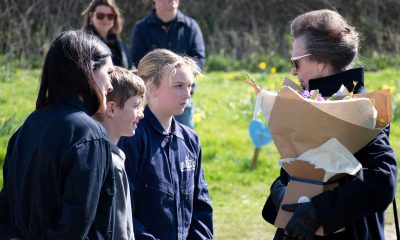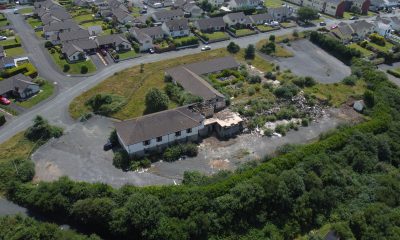Farming
New European policies ‘must have family farms at heart’
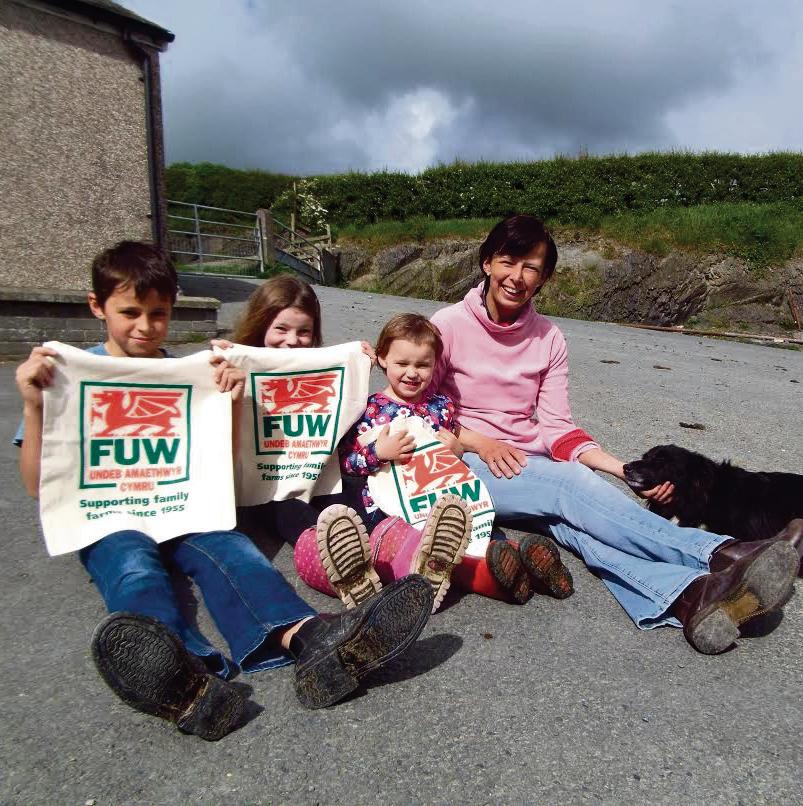
ANY NEW policies adopted by the EU Parliament following yesterday’s elections must ensure they have family farms at their heart, according to Farmers’ Union of Wales president Emyr Jones.
by the EU Parliament following yesterday’s elections must ensure they have family farms at their heart, according to Farmers’ Union of Wales president Emyr Jones.
Speaking on the eve of last weekend’s Royal Welsh Spring Festival, Mr Jones said that between May 22 and 25 people across the EU will elect 751 Members of the European Parliament (MEPs) who, alongside the Council of Ministers and the European Commission, will decide policies affecting our daily lives, more so for farmers than any other section of the community. Mr Jones was launching the FUW’s latest campaign “Supporting Family Farms Since 1955” that coincides with this year’s UN International Year of Family Farming which is highlighting the potential family farmers have to eradicate hunger, preserve natural resources and promote sustainable development. He added: “Given the diversity of climates, topography, cultures and economies across the EU, it is no surprise that even the most pro- Europeans can become frustrated with Brussels dictates which make no sense in a region such as Wales, while those bitterly opposed to the EU have a field day blaming all the ills of the world on our membership. “Yet, despite the focus in the UK press on the issue of EU membership and where the balance of powers between Member States and Brussels should lie, reporting of the daily deliberations of the EU Parliament regarding issues which we might support, or bitterly oppose, remains scant at the most. “This leaves members of the general public detached from the politics and policies they so often bemoan, allowing pro and anti-EU politicians to blame the EU whenever it suits their agendas to do so, and Governments to hide their own insatiable appetites for red tape behind the convenient scapegoat of EU Regulations. “With agriculture taking the most significant portion of the European budget, and bearing the brunt of so many disproportionate and costly regulations, Wales’ farmers must consider carefully the implications of all the options now being discussed.” Those options are: to allow the EU to continue on its present course, which many believe will lead to a United States of Europe; to try and restore it to something more akin to the Common Market we voted to remain a part of in 1975; or to pull out altogether, leading to a full restoration of sovereignty but with no guaranteed access to our most important markets and the common agricultural policies which are part and parcel of that access. “The FUW’s current position is simply that we support EU membership – hardly surprising given that successive UK Governments have made it clear that they wish to increase food imports from outside the EU and dismantle the CAP – a policy which provides essential incomes for Welsh farming families and ensures plentiful, safe and affordable food for EU citizens,” said Mr Jones. “And, of course, we need only look back to the 2001 FMD outbreak and the accompanying export ban to see the impact that being closed out of the common market has on prices. “However, Welsh farmers have much to be aggrieved about when it comes to the suffocating and costly bureaucracy that emanates from the EU, and many wish for a return to the halcyon days when food production and common sense took priority over paperwork and illogical rules. “Whatever our views, we must weigh up the implications of all options with our heads as well our hearts. Welsh agriculture and our rural communities currently rely on the CAP and access to EU markets, and those who wish to see us operating outside the EU must provide valid economic assessments and policies which set out how a collapse in rural incomes and food production would be avoided. “We must also be aware that a renegotiation of powers could centre on the renationalisation of agricultural policies, with the focus not on reducing burdensome EU Regulations, but on implementing key recommendations from the 2005 Treasury/Defra ‘Vision for the CAP’ – a blueprint for dismantling agricultural support and increasing food imports. “Again, we need solid proposals and assurances that any renationalisation of powers will not lead to the collapse of Welsh agriculture and rural incomes. “Those assessments, analyses and policies must have at the heart of them the Welsh family farm: farms which have the highest productivity per hectare, are responsible for the overwhelming majority of Welsh food production and form the backbone of our rural communities.”
Farming
New research network aims to reduce dairy farming carbon footprint
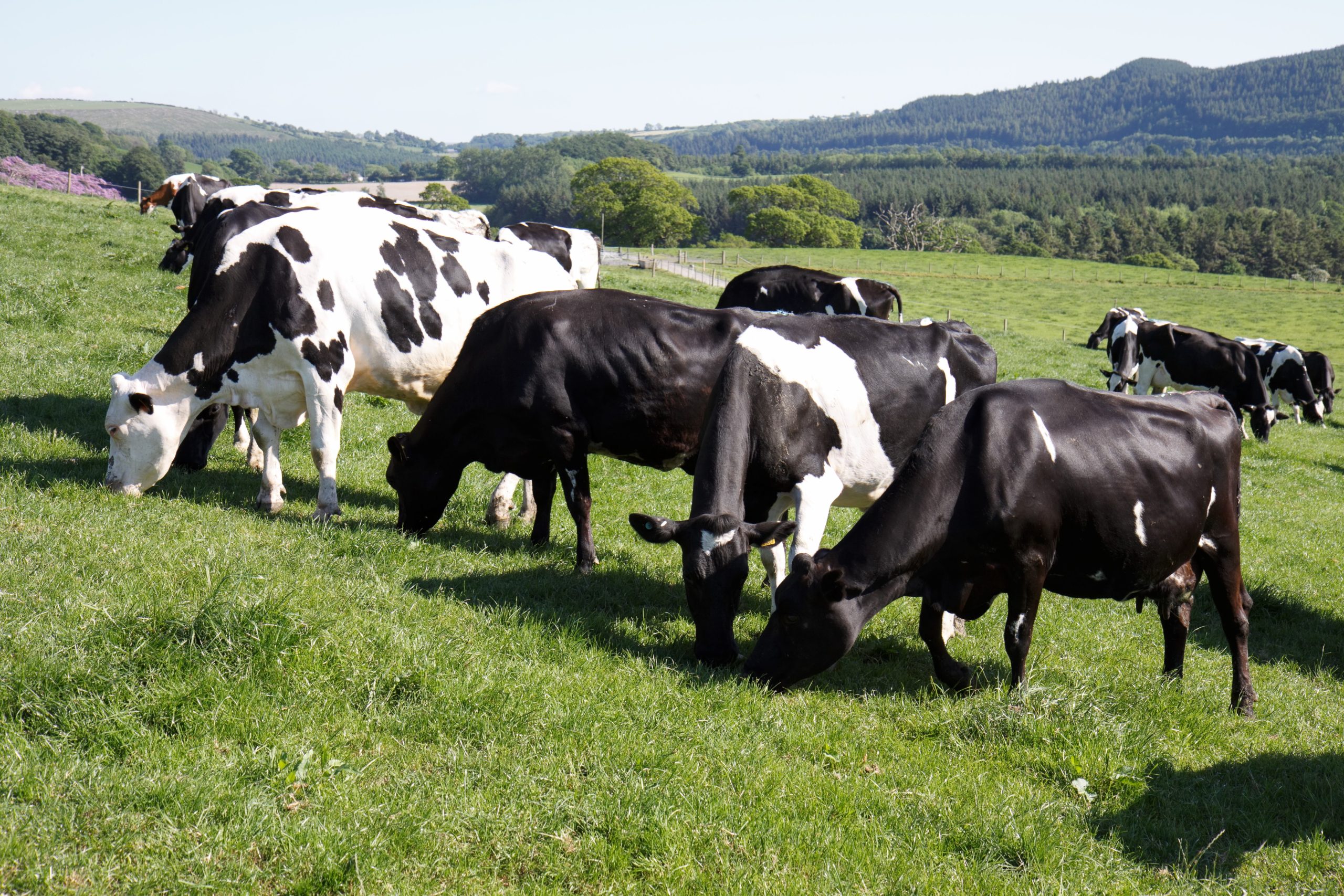
INNOVATIVE strategies to significantly reduce high levels of greenhouse gas emissions in the dairy industry are being trialled in a major new research project.
The pioneering initiative will test and assess the effectiveness of a range of science-based solutions aimed at making dairy farming more economically and environmentally sustainable.
A network of 56 dairy farms is being set up across four major dairying regions in the UK, including West Wales and South/South-West England; Northern Ireland; Cumbria and South-West Scotland, and North-West England.
The network will provide a series of demonstration hubs where farmers, industry, scientists and policymakers can work together to deploy and evaluate the impact of the new measures.
Aberystwyth University is one of ten leading research institutions contributing to the UK Dairy Carbon Network project, which is led by the Agri-Food and Biosciences Institute (AFBI).
The project will be developing a toolkit of practical measures which dairy farmers can choose to adopt in a bid to reduce their herd’s carbon footprint.
Options could include:
- improving forage quality through science developed by plant breeding programmes at Aberystwyth University’s Institute of Biological, Environmental and Rural Sciences (IBERS)
- following the latest research on best practice for silage making
- reducing the protein content of dairy cow feeds to improve nitrogen use efficiency.
Professor Jon Moorby, Chair in Livestock Science at Aberystwyth University, said: “Dairy cows contribute significantly to Wales’s rural economy and produce high quality food for people from grass and other forages. However, cows, like other ruminant animals, produce greenhouse gases like methane as a by-product of converting grass into milk.
“Many dairy farmers are already taking steps to help minimise greenhouse gas production from their cows and this project aims to demonstrate further what can be achieved across all types of dairy farms to help improve their sustainability. This is a collaborative initiative and we want to work closely with farmers as well as the wider industry and policymakers.”
Professor Steven Morrison, Head of Sustainable Livestock Systems at AFBI, said: “Our goal with the project is to drive meaningful change in the dairy sector by applying research directly to real-world farming conditions and measuring the impact.
“By working closely with farmers and using advanced measurement and modelling techniques, we aim to measure and report significant reductions in the carbon emissions from dairy farming in the UK. During the formation of the project, the interest from across the agricultural sector was immense, with over 50 organisations offering support and indicating a willingness to get involved in the project once commissioned.”
The UK Dairy Carbon Network Project is funded by the UK Government’s Department of Environment, Food and Rural Affairs (Defra). Led by AFBI, the UK wide consortium of organisations also includes the Agriculture and Horticulture Development Board (AHDB); AgriSearch; UK Agritech Centre; ADAS; Aberystwyth University; Queen’s University Belfast; Harper Adams University; University of Reading; Newcastle University and Scotland’s Rural College.
Farming
Farmers urged to monitor winter wheat as early yellow rust raises concerns
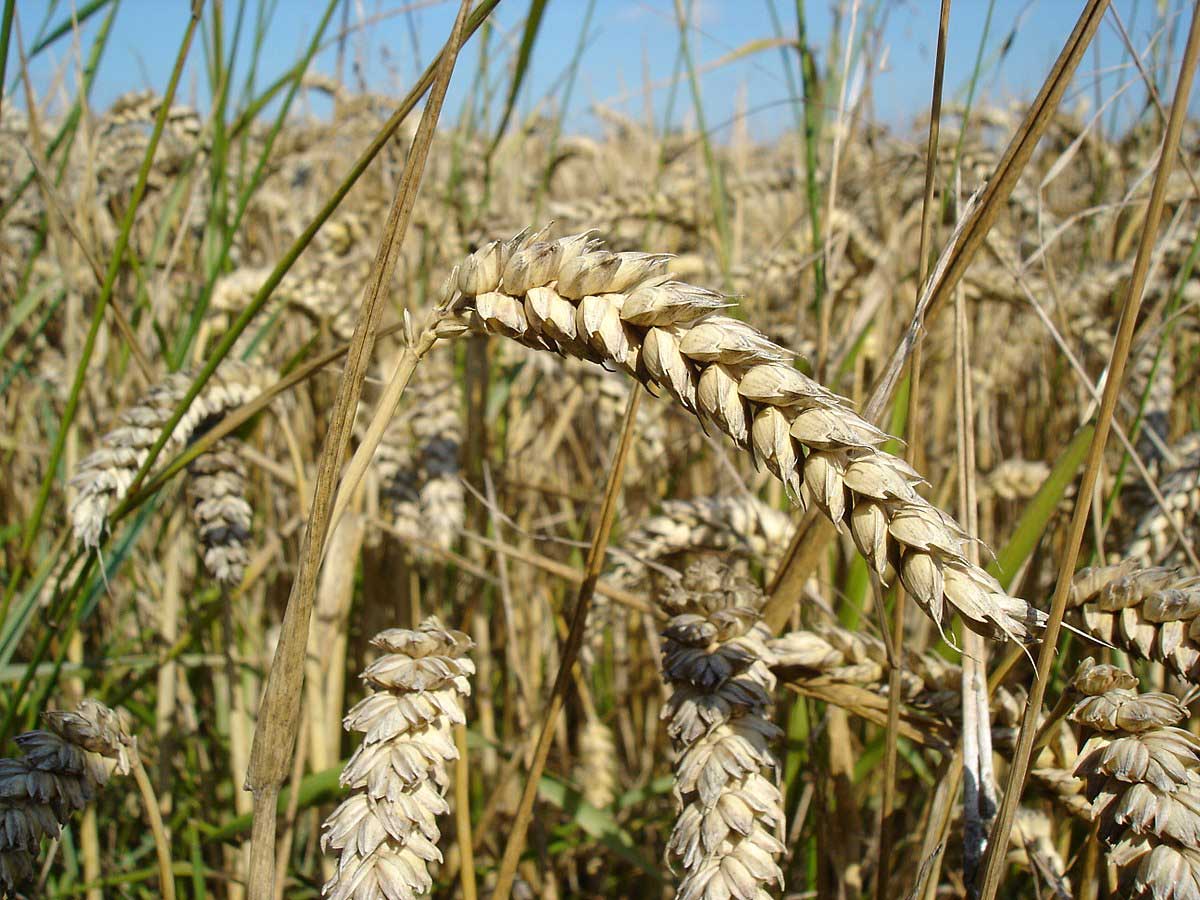
UNUSUAL early observations of yellow rust on several winter wheat varieties in some Recommended Lists (RL) trials mean farmers will need to monitor crops more closely and not rely on RL disease ratings this season, according to the Agriculture and Horticulture Development Board (AHDB).
Recent RL trial inspections in the North of England have found signs of the foliar disease on several varieties classified as resistant at young plant stage in the latest RL (2025/26), including some varieties that are widely grown. There are also the first hints of something unusual starting to happen in other RL trial regions.
As the yellow rust pathogen population is highly diverse, it is not unusual to detect new strains. However, these early observations suggest that there may be a significant new strain or strains in the UK pathogen population that we have not seen before.
Interestingly, some varieties historically classified as susceptible at the young plant stage are currently relatively clean at the impacted trial sites. This suggests a potential pathogen population shift that may have displaced some other yellow rust strains.
AHDB Senior Crop Production System Scientist, Mark Bollebakker, responsible for managing the RL trials, said: “The trials in question were at about growth stage 30 at the time of inspection, so adult plant resistance had not kicked in. When it does, from stem extension onwards, these varieties may outgrow initial infection. However, it is difficult to predict what will happen. We have sent samples to UKCPVS for testing to give us a better understanding of what we are seeing.”
With a very fluid situation, farmers and agronomists should inspect all varieties prior to final spray decisions and not rely on the RL ratings until we know more.
AHDB trial inspectors are assessing the situation and further updates will be issued as soon as possible.
More information can be found at: Has the winter wheat yellow rust population shifted? | AHDB
Farming
Farming Connect mentor involved with the latest series of ‘Our Dream Farm’
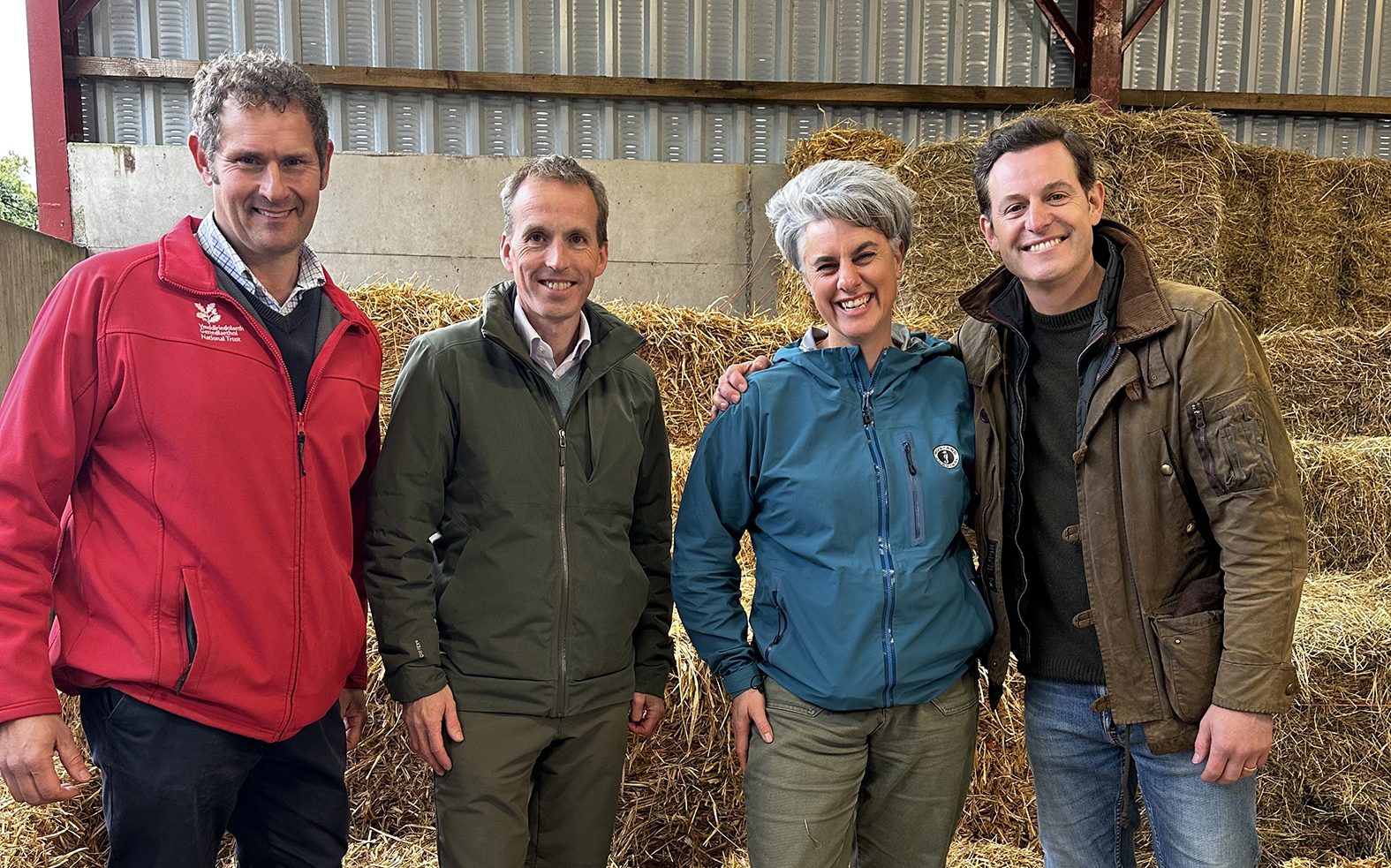
CATCH up with the trials, tribulations and triumphs of the finalists in the second series of ‘Our Dream Farm’, Channel 4’s popular tv programme, who are currently on our screens at 7pm on Saturday evenings; the ‘dream farm’ is in Eryri – formerly known as Snowdonia – and Farming Connect has been part of the process!
You can watch the final group of seven, ultra-hopeful candidates – some filmed with supportive better halves or relatives – as they are put through their farming paces in the second series of ‘Our Dream Farm’. Presented by popular tv personality, farmer and countryside expert Matt Baker, this year’s ‘dream farm’ with its mix of mountain pasture, woodlands and lowland is in one of the most jaw-droppingly spectacular locations in Wales.
Acknowledged as ‘the opportunity of a lifetime’, a 15 year-long tenancy of the 248-hectare farm, which includes a beautifully refurbished house and numerous outbuildings owned and managed by National Trust Wales, is the amazing prize up for grabs.
Farming Connect became part of the selection process when one of its mentors and Agrisgôp Leaders, Caroline Dawson, was invited to mentor and tutor the finalists in an on-farm workshop she designed and led. Caroline, a specialist diversification and agri-food expert from North Wales, began her day with an ice-breaker activity.
“I asked each member of the group to sketch a picture of themselves and list their strengths.
“There were lots of incredulous laughs at first but they all quickly realised the real challenge had started, because it’s not easy to describe yourself in a way that demonstrates what makes you more knowledgeable, more focused, more tenacious and more able – in other words the best tenant – to manage this amazing farm,” said Caroline.
Throughout the duration of Caroline’s day-long workshop, which took place in one of the farm’s specially re-purposed ‘picture perfect’ barns, eagle-eyed judges Giles Hunt, Land and Estates Director for the National Trust and Trystan Edwards, General Manager for Eryri National Trust Cymru joined Matt Baker to observe the whole process as Caroline put the final seven – whittled down from the original 11 applicants – through a series of exercises.
National Trust Cymru purchased this farm in 2012, following a successful public appeal. Until 2020 they ran it in partnership with Wales YFC, after which it was managed by five YFC scholars through subsequent shorter-term tenancies. The conservation charity now wants to hand over the reins longer term, giving the new tenants sufficient time to combine sustainable land management and conservation principles with developing a resilient, profitable, diversified farm business. In addition to managing the farm’s sheep flocks, they will need to implement a new business plan which capitalises on the high number of tourists who visit Eryri each year.
The steep surrounding land is insufficiently productive for large stock numbers but there is significant potential to diversify. Caroline, an experienced facilitator, devised activities that required each contestant to explain how they planned to capitalise on the opportunities to attract, accommodate and manage revenue-earning activities for the nature lovers, walkers, climbers, cyclists and water-sports enthusiasts who flock to the area every year. Each candidate had to demonstrate their vision, showing they had the confidence and ability to produce and implement the best business plan to preserve the heritage of the farm with its unique biodiversity, while safeguarding its long-term viability through tourism.
Each programme in the current series will feature various challenges and practical exercises with applicants eliminated one at a time until the names of the winner are revealed in the final episode of Series 2.
“Tenancies of this calibre are extremely rare. I feel hugely privileged to have met each of the brilliant candidates and played some small part in a process that will lead to a life-changing opportunity for the ultimate winner or winners,” said Caroline.
-

 Business6 days ago
Business6 days agoSpaceX eyes Milford Haven for new UK facility
-

 Crime7 days ago
Crime7 days agoPembrokeshire farm worker accused of threatening to burn employer’s farm
-

 Crime6 days ago
Crime6 days ago‘Yeah but no but’ insult to female officer lands Monkton man with court fine
-

 Features6 days ago
Features6 days ago‘We weren’t wild. We were unprotected’: A generation groomed and forgotten
-

 Crime6 days ago
Crime6 days agoLeaked messages reveal shocking culture at HMP Parc amid misconduct probe
-

 Politics7 days ago
Politics7 days agoProbe into ‘escalating’ horse fly-grazing in Pembrokeshire
-

 Crime6 days ago
Crime6 days agoInquest reveals tragic consequences of inadequate medication in prison
-

 Community6 days ago
Community6 days agoTenby boat lift signals start of tourist season in Pembrokeshire
























